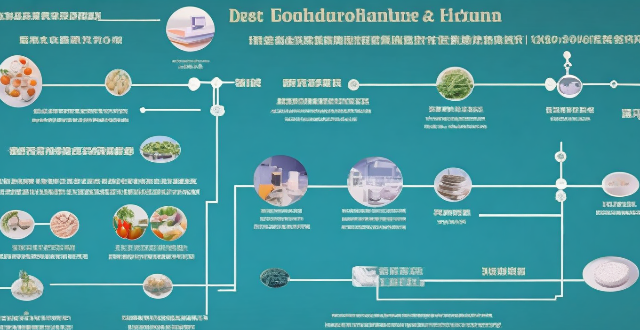HACCP(危害分析和关键控制点)是确保食品安全的重要工具,通过识别、评估和控制食品安全危害的系统方法来预防潜在风险。该系统侧重于预防而非依赖最终产品测试,包括识别生物、化学和物理危害,确定并实施关键控制点(CCPs),以及进行监测和验证以确保CCPs有效执行。同时,记录保持和持续改进也是HACCP系统的关键组成部分,有助于食品行业减少食源性疾病暴发的风险,保护公众健康。

HACCP (Hazard Analysis and Critical Control Points)
HACCP is a systematic approach to the identification, evaluation, and control of food safety hazards. It is an important tool used in the food industry to ensure that products are safe for consumption. The HACCP system focuses on preventing hazards rather than relying on end-product testing.
Why is HACCP important for food safety?
Identification of Hazards
The first step in the HACCP process is to identify potential hazards that may occur during the production process. This includes biological, chemical, and physical hazards. By identifying these hazards early on, the food industry can take proactive measures to prevent them from occurring.
Control of Hazards
Once hazards have been identified, the next step is to determine how they can be controlled. This involves implementing critical control points (CCPs) at each stage of the production process where a hazard could occur. CCPs are specific steps or procedures that must be followed to ensure the hazard is controlled.
Monitoring and Verification
To ensure that the CCPs are effective, monitoring and verification procedures must be implemented. This includes regular testing and inspection of the production process to ensure that the CCPs are being followed correctly. Any deviations from the established procedures must be corrected immediately to prevent any potential hazards from occurring.
Record Keeping
Maintaining accurate records of all aspects of the HACCP system is essential for its effectiveness. Records should include documentation of hazard analysis, CCP implementation, monitoring and verification procedures, and any corrective actions taken. These records provide evidence of compliance with food safety regulations and help to identify areas for improvement in the production process.
Continuous Improvement
The HACCP system is not static; it requires continuous improvement based on new information and changing circumstances. As new hazards are identified or new technologies become available, the HACCP plan must be updated accordingly. This ensures that the food industry remains at the forefront of food safety practices.
In conclusion, HACCP is a crucial component of food safety management systems. Its systematic approach to identifying, evaluating, and controlling hazards helps to ensure that food products are safe for consumption. By implementing HACCP, the food industry can reduce the risk of foodborne illness outbreaks and protect public health.